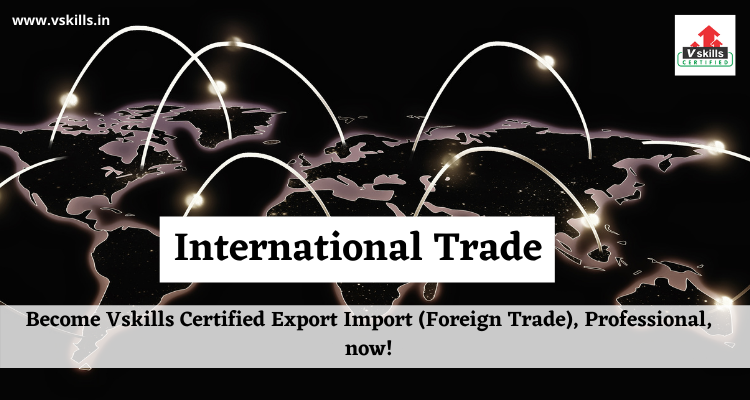Let’s learn more about International Trade. Trade is the transfer of ownership of goods and services from one person to another. Trade is sometimes loosely called commerce or financial transaction or barter. A network that allows trade is called a market. The original form of trade was barter, the direct exchange of goods and services. Later one side of the barter was the metals, precious metals (poles, coins), bills, and paper money. Modern traders instead generally negotiate through a medium of exchange, such as money. As a result, buying can be separated from selling, or earning. The invention of money (and later credit, paper money, and non-physical money) greatly simplified and promoted trade. Trade between two traders is called bilateral trade, while trade between more than two traders is called multilateral trade.
It is the exchange of capital goods, and services across international borders or territories. In most countries, it represents a significant share of gross domestic product (GDP). While trade has been present throughout much of history, its economic, social, and political importance has been on the rise in recent centuries.
In most countries, such trade represents a significant share of gross domestic product (GDP). While trade has existed throughout history (for example Uttarapatha, Silk Road, Amber Road, scramble for Africa, Atlantic slave trade, salt roads), its economic, social, and political importance has been on the rise in recent centuries.
Carrying out a trade at an international level is a complex process when compared to domestic trade. When trade takes place between two or more nations factors like currency, government policies, the economy, the judicial system, laws, and markets influence trade.
To smoothen and justify the process of trade between countries of different economic standing, some international economic organizations were formed, such as the World Trade Organization. These organizations work towards the facilitation and growth of international trade. Statistical services of intergovernmental and supranational organizations and national statistical agencies publish official statistics on international trade.
This module covers the following topics:
- Regulations of International Trade
- Risks in International Trade
- Top trading nations (2010 estimates)
- Top traded commodities (Exports)



